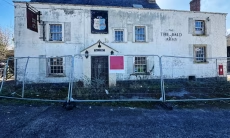Britain’s pub sector is facing a crisis, with new figures showing an average of eight pubs a week closed permanently in the first half of 2025. In just six months, 209 pubs have shut their doors for good — leaving communities without their local and pushing the number of closures since 2020 to more than 2,200.
The Rising Cost of Keeping the Lights On
Industry bodies warn that pubs are being forced out of business by a combination of rising costs and increased taxation.
Key pressures include:
- Business rates: The Government’s decision to reduce the discount from 75% to 40% has added an extra £215m in tax burden for pubs across the UK. Many small operators have seen their bills more than double, from around £3,900 to nearly £9,500.
- National Insurance Contributions: The recent 10% increase — now also covering part-time staff — has added significant payroll costs.
- Wages: The minimum wage has risen by 50% in just five years, leaving operators struggling to keep up.
- Energy and supply costs: Continued high utility prices, packaging taxes, and inflation on food and drink supplies have left little margin for survival.
Trade Bodies React
Steve Alton, chief executive of the British Institute of Innkeeping (BII), described the situation as “shocking but unsurprising”:
“These closure figures are a direct result of the incredible pressure placed on our pubs. They have done everything they can to adapt, but there is nothing left to streamline. Once these pubs are gone, they are gone forever.”
Emma McClarkin, chief executive of the British Beer and Pub Association (BBPA), echoed the concerns:
“It is absolutely heart-breaking to see pubs disappearing at this rate. They are not just businesses — they are community spaces with real social value. The Government must act at the next Budget with urgent reforms to business rates and beer duty.”
More Than Just Numbers
Behind the statistics are pubs that have served as the heart of their communities for generations. Each closure means lost jobs, lost heritage, and the loss of a meeting place that binds neighbourhoods together.
For many villages and towns, once the pub is gone, it is gone for good.
Conclusion
The closure rate of eight pubs every week is a stark warning about the future of Britain’s pub culture. Without meaningful government support, thousands more could follow in the months ahead.
The message from the industry is clear: reform is urgently needed if we are to protect pubs, preserve jobs, and keep the unique spirit of the British local alive.





